Foreword
Poornima Suresh is a poet, a litterateur well versed in Kannada and Konkni languages, well experienced in the fields of theatre and cinema, a very good organiser and a TV anchor. Apart from her social activities, she has brought 4 anthologies of poems and a collection of prose writings.
The translator of these poems Dr. Parvathi G. Aithal is a well- known name in the field of literature, especially through her translations among five languages – Kannada, English, Hindi, Tulu and Malayalam. Retired now as a professor of English from Bhandarkars’ College, Kundapura, she has brought into Kannada many classics from English, Malayalam, and Hindi, and remains a bridge between many languages. Her translations of Malayalam novels of M.T.Vasudevan Nair, (Jnanapith Awardee), Vaikkom Mohammed Basheer’s novels, the autobiography of Kamaladas, the anthology of the eminent Malayalee women writers, Sukumara Azhikkode’s ‘Upanishat Chintane’, Pearl S. Buck’s novel ‘Good Earth’, Karanth and Thakazhi – A Comparative study (her book in English) are noteworthy.
The present work is a translation of Poornima Suresh’s 40 poems from Kannada to English. It is a known fact that a translator must be well versed in the language of the source text as well as the language to which the original text is to be translated. It is indeed a task to convey the essence of the source text into another language without disturbing the meaning , and this is more true while translating poetry. Parvathi Aithal’s translation stands successful in this regard.
Examination of some poems justify this statement. For example, the poem ‘Reminiscences’ is one such poem in which the poet reminisces about the childhood she enjoyed with her siblings. The incidents go on piling up:
Those days of golden dreams
Inside our ragged bedspreads
The blanket of dreams with
Which we struggled to cover ourselves
Did you forget?
The happy moments
When you enjoyed licking your fingers
After gulping the dosas smeared with
The butter prepared by our granny
Stealthily kept on our palms.
Did you forget?
Such descriptions carry the reader back to his/her own childhood days and picturises the love and friendship of children, the affection of the elders, like the grandmother and the routine way of life in that particular period.
The poem paints the picture of girls wounding their mother’s sarees (which always happens), smiling like princesses, weaving colourful dreams.
Were there no quarrels? Yes, there were many, but they served to increase the love and affection between the siblings.
Quarrelling and cross
On a piece of food
One tiny little story
For mother’s hug or on a secret hidden
And hugging each other the very next moment.
Did you forget?
‘Did you forget?’ occurs as a refrain in the end of each stanza. But the last stanza reveals the stark reality, the change in the present situation the once ‘happy and don’t care’ siblings have to face now:
We are bound now by the fences
Built by ourselves around us
We have to put our signatures
For the tomorrows opened before us by strangers.
Thus the poem depicts the innocent, happy golden days of childhood and how they glide into the days of growing up, knowing the ways of the world and preparing to face them.
Some of Poornima’s poems speak of the situations-I don’t say trials and taboos- a girl or a young woman had to face and endure in the old conservative society. We may remember T.Sunandamma, the first woman writer who brought humour into Kannada literature. She said that when she was young, the elders used to admonish girls ‘why do you laugh so loudly like men?’ The laugh would die before its birth. Such mindset of the elders is captured in the poem ‘I Haven’t Learnt How to be a Man’. ‘Your voice should not rise so high and touch the roof’ ‘your footsteps shouldn’t make any sound’ and such orders instigate a sense of protest in the poet to be a woman. She says:
I have stopped acting like a woman
I haven’t learnt how to be a man
That’s why I am becoming my own self.
‘My Toothless Grandma’ is a fine tribute by Poornima to her grandmother who had undergone umpteen distresses and miseries, yet showered love and affection on her grandchildren, and was a pillar of strength and support to her family. This picture of the toothless grandma happens to be a universal picture of all grandmothers. This granny gave the children the elephantine strength, fed them with rice milk, filled their mind with the wealth of stories from puranas and folklore, and instilled love and respect towards the family deities and culture of our country. Though a long poem, it brings the right value of harmonious family life, value of relationship and need of reverence towards the elderly people. Such a granny, will no doubt become a companion, an energy to drive away grief and desolation.
‘The Groundnut Seller’ takes us back down the memory lane, where the groundnut seller used to move along the street, crying ‘hot groundnuts..’ and the affection he would shower on the children along with groundnuts. The picturesque description here is heart warming.
In ‘I Remember You’ the poet remembers the Maker of the Constitution, who himself had suffered ‘the shackles of centuries’ and exploitation. The poet taking courage, being inspired by such a formidable personality, takes a pledge to ‘set foot on the path of equality.’
‘The Wings’ is a wishful thinking that carries the poet on non-existing wings to an almost different planet. The process of thought is described elaborately and creates its own vision-an imaginary journey. In the end of the poem, we see:
Still the wing is in the same place
Silently lying down beside me.
And the poet is waiting ‘for the happy moments of natural wings’. Then which were the wings that helped her to take the flight? Is the whole journey an imagined one?
The poems like ‘He and She’ bring to light some aspects of man-woman relationship. The pair meets, but there is no exchange of feelings or emotions.
At last they get up smiling without opening their lips
Walked off to their own abodes
Staring futilely at
The silence so far.
What prevents the mutual exploration is not known.
‘The Stealthy cat ‘delineates the allotropic activities of the cat very interestingly and effectively. The poet dramatically describes the movements of the cat as though it is an omnipresent being, here, there and everywhere, causing inconvenience by its silent intruding and sometimes disturbing the order in the kitchen. Begging for our love with its furry touch, the cat may be cruel also, mimicking a tiger. The poet remembers the grandmother’s warning to be careful, for ‘the cat has a tendency to attack you.’ ‘It will catch hold of your life’. Thus the cat happens to be a metaphor for the stealthy, silent movements, pretention of innocence, selfishness, hunting skill, ferociousness and furry softness. Sometimes its furry tail seems ‘snake-like’ to the poet, and points out the danger.
‘The Monthly Period ‘is an exclusively woman’s poem. The poem tells about the bodily pain and mental anxiety prior to these monthly routine a woman has to undergo. Still, if you are a married woman, these cycles of period raise hope and expectation of becoming a mother. When it is delayed it may make her dream of a baby-showering ceremony too. She hopes to deliver a lovely poem. When it doesn’t happen, she accepts the reality: ‘Isn’t it there?/It’s there. If not/The red bath will be there anyhow.’
“The Delusion” brings out the reactions of males from many fields of society, when they look at a young Devadasi, considered as a ‘God’s Woman.’ The poet pinpoints the attitude of the ‘Grocery shop uncle’, the old man Ismail, the plastering man and the carpenter.
All the men of the village
Come forward to be her God.’
The elderly man of the village pretends great affection for her and asks her:
‘When are you free? Which night?’
Even the priest performing pooja, gives her ‘Thirtha-prasadam’ quite ‘affectionately’. But behind the words and acts of all these, there is that unholy desire to satisfy themselves sexually. Such behaviour of these people embarrasses the girl. The poem very subtly and ironically depicts the attitude of the male society towards a woman who has been so cruelly pushed to the filthy system of Devadasi, which is not fully abolished till today.
‘The Fly’ is also a long poem in which the image of a fly works as a sustained metaphor for many external objects/persons, and one’s own internal hidden thoughts buzzing in the external mind. The fly may be an unwanted intruder disturbing the peaceful solitude. Anyway, the poet has to bear the brunt of taunts of her master- the husband, for, she being the mistress of the house, staying the whole day in the house, has allowed the fly to enter inside. She feels like stabbing the fly with the spear of words of her beloved. How did this fly make its way into her castle-like palatial house? The fly in the poem stands for umpteen objects.
The ‘Torn Chappal’ lying in the middle of the road forces the poet’s imagination and brings before her the person’s condition now, once who was the master of these chappals.
‘The Saga of the Mobile’ brings before us our own thoughts and feelings, which we had dumped down in our sub-conscience- like a mobile which had all the information data was thrown away. But the recovery of the mobile makes the ‘poet sprout and permeate’:
The auspicious moments of its fragrance as though I got
A new meaning of life.
Very often our old memories rejuvenate and bring some sort of aching happiness.
In many poems the poet has expressed her thoughts and emotions. Likewise, she has captured the inner world of creatures like sparrows too. ‘The Universe within the Sparrow’ is one such poem. The Poem records the pangs of the birth of a poem, and the joy when the poem is ‘beautifully smiling in front of her.’
I congratulate Parvathi G.Aithal for her lucid, easily intelligible and meaningful translation, retaining the original essence of Poornima’s poems, thereby providing an unobstructed, smooth and pleasant experience to the readers.
Bengaluru Prof. L.V. Shanthakumari
26.12.2024
The Translator’s Note
Poornima Suresh is a familiar name to the readers of Kannada literature not only as a poet, but as a multifaceted personality-as an actress on the stage, on the small screen and the big screen, as an organiser of literary and cultural programmes in and around Udupi, and as a T.V. anchor.
Poornima has published four anthologies of poetry all distinguished in their own way. The social and humanitarian concern that she shows in her poems are dominant. In most of the poems she shows how she has been disturbed by the gender discrimination in the male-centred society. However, she is not a staunch feminist. She does not use any vociferous tone when she speaks about the social restrictions imposed on women. Her tone is comparatively lighter and ironically humorous.
Some of her poems are having a very subjective tone with the first person narration, giving expression to the speaker’s inner feelings and emotions about “he”. Very often, she turns a feminist in a very mild way. In the sense, she does not raise her voice using a vociferous tone. Her poems are replete with metaphors, where she articulates her thoughts and feelings in between the lines. She does not want the women to limit their existence to the space within the Aquarium, where they are forced to stay by the patriarchal social system (Aquarium P:). She does not want women to meekly follow the social conventions which have chained her at every step. (I Haven’t Learnt…P:) She expects the woman to stand strong, firm and undaunted, taking her own decision in any kind of situation trying to divide her. (Madhyamavathi)
For my translation in this anthology, I have chosen poems from all the four anthologies. Compared to the translation of prose pieces, translation of poetry is not an easy job- especially when the original version is closer to the native soil. I have tried my best to bring out the original flavour, and I hope that the readers of English version would relish it.
I express my deep sense of gratitude to Poornima Suresh for giving me the opportunity to translate and publish her poems in the form of an anthology. My hearty thanks are also due to Prof. L.V. Shanthakumari, an eminent scholar, both in Kannada and English literatures, for writing a beautiful foreword to this translation. I am also grateful to Bhoomi Pustaka, Hosapete for taking up the Herculean task of publishing the book.
10.12.2024 Dr. Parvathi G.Aithal
 Our Books
Our Books
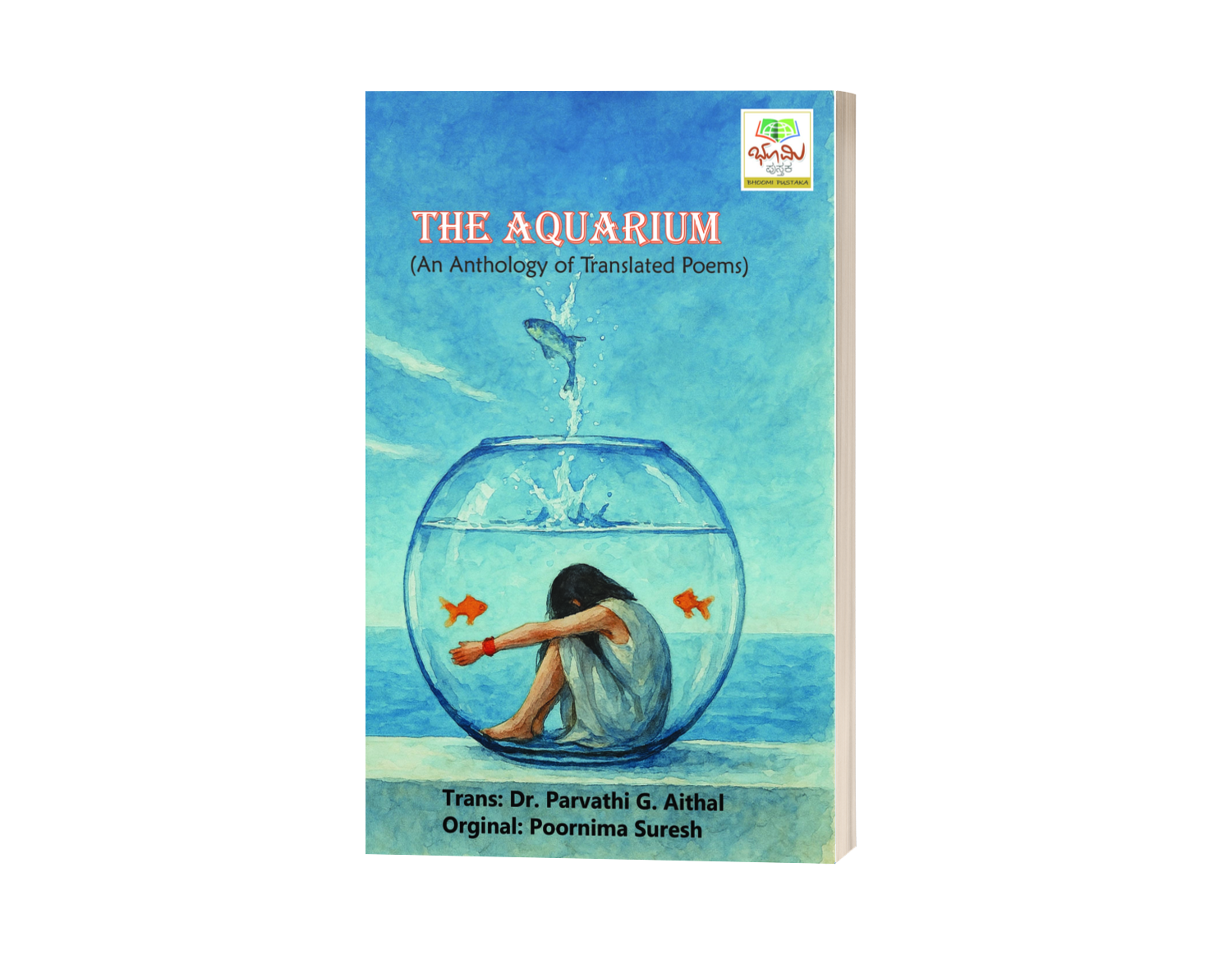
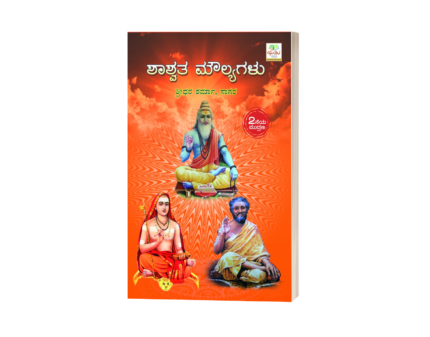
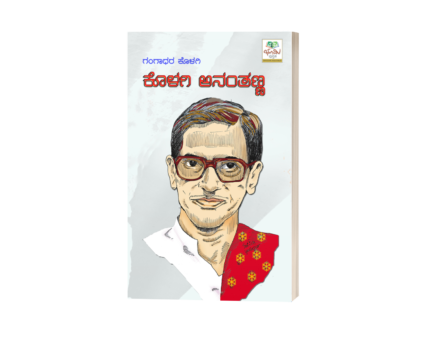


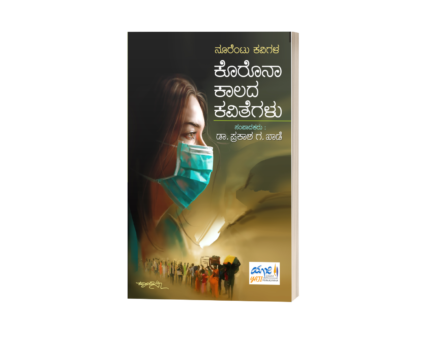

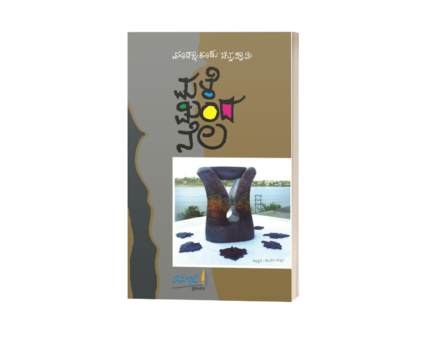




Reviews
There are no reviews yet.